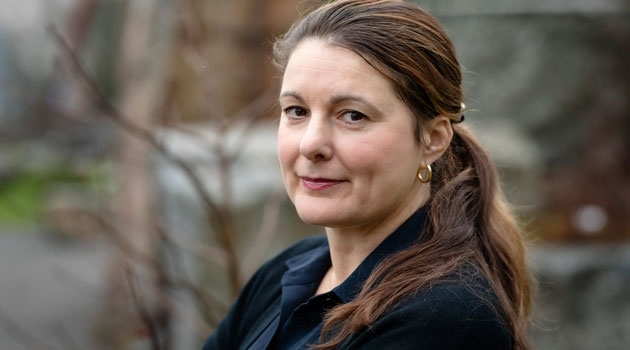Studying the psychological effects of the pandemic
For many people, the past few months have been a trial. Karin Brocki is studying the impact of the Covid-19 pandemic on mental health – both among the population at large and in families with young children. Over 1,000 people have already responded to an online survey.
According to Professor Karin Brocki of Uppsala University’s Department of Psychology, it is important to study the relationship between Covid-19 and mental health.
"In mental health terms, this pandemic is a worst-case scenario as it entails a loss of control with great uncertainty in most aspects of life: our families, jobs, finances, society; anxiety increases, we must isolate ourselves and avoid social contact, which we know promotes mental health. So, we can probably expect to see major negative consequences for mental health. The mentally vulnerable in particular may find the pandemic to be a trigger.”
Previous studies of SARS and influenza pandemics have looked at how these have negatively impacted on mental health. Chinese and Italian researchers have already begun publishing studies of how Covid-19 has led to increased levels of depression and anxiety and a deterioration in the quality of sleep.
Specific vulnerable groups
There are also many psychological studies underway in Sweden.
"As we began to design and plan the study at an early stage of the pandemic we have a head start, although it took a while before we were able to obtain ethical approval. It is critical that we understand the psychosocial effects. If we can understood these then we can ameliorate the problems, either later in this pandemic or during future outbreaks of disease."
Over 1,000 people have already responded to a survey designed to map people’s greatest concerns and identify the specific groups that are most vulnerable, based on parameters such as gender, age and occupation.
“One interesting factor is psychological flexibility – an ability to adapt to various circumstances. This may function as a prophylactic, while psychologist inflexibility may be a vulnerability. This is a treatable characteristic that responds to cognitive behavioural therapy.”
Families with small children affected by restrictions
Another study is looking at how children and their families are being affected by the Covid-19 pandemic and the restrictions imposed as a result. This is an international collaboration initiated by the University of Cambridge in the United Kingdom
and will also be conducted via a survey as soon as ethical approval is obtained. The study will be conducted in a total of seven countries: the United Kingdom, Sweden, Italy, China, Australia, New Zealand and the United States.
"Although Sweden has maintained a liberal approach and schools have remained open, even here there have been restrictions. Our hypothesis is that this has affected family life, especially families with children between the ages of four and seven. It is difficult for small children to understand the restrictions. They have limited knowledge of online pedagogical activities and a very great need for physical activity.”
Impact on gender equality and gender roles
Researchers are planning to study a number of areas, for example: What effects will the increased economic burden have? What effects will increased presence in the home have on gender equality and gender roles? Have parental attitudes to children’s screen time changed during the pandemic? Will the pandemic have less impact on families who live in houses close to nature than on those who live in apartments in urban areas?
"We will be studying many different aspects of family life and it will be extremely interesting to compare effects in the countries participating in the project. There is also a follow-up study planned in six months time, so that we can differentiate between short and long-term effects,” says Karin Brocki.
Annica Hulth
Facts: Two studies on the psychological effects of the pandemic
Both studies are being funded by the Swedish Research Council, which is encouraging the use of funds already granted to other research projects for the study of Covid-19.
Karin Brocki is head of research for both studies. Professor Lance McCracken, Dr Monica Buhrman, Dr Matilda Frick and Dr Farzaneh Badinlou are participating researchers at the Department of Psychology, while Uppsala University is the principal research body. The study of families with children is an international collaboration mainly with the University of Cambridge, which is the principal research body for the UK part of the study.

